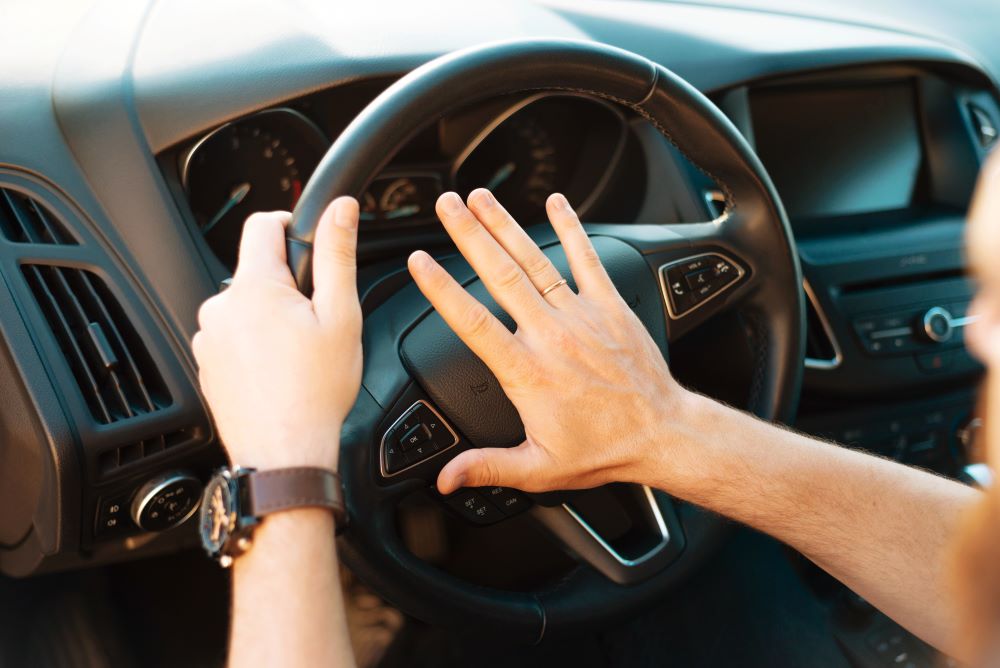When is it OK to honk? PEMCO Poll shows generational divide
If you think you're hearing more people honking their horns than you used to, you may be on to something! According to our latest PEMCO Poll, more drivers today say it's at least somewhat appropriate to honk at other drivers compared with drivers just four years ago – 65% now versus 49% in 2017. But that Poll average masks a greater generational divide. Among Seattle drivers under 55, 72% give honking the thumbs up; however, just 52% of those over 55 feel the same (for Portland, it's 67% and 44%).
 So where to draw the line on honking?
So where to draw the line on honking?
There's less legal guidance than you might expect. In Washington, legal honking should ensure safe operation in traffic and when around pedestrians in RCW 46.37.380 and RCW 46.61.245. In Oregon, "unnecessary … sound by means of a horn" is prohibited under ORS 815.225. But in both states, honking has been upheld in court as protected free speech in some circumstances. We had to dig back to 2014 to find an Oregon case where tickets were issued for "unnecessary noise" coming from people who were honking to support a teachers' strike in Medford. It was a $160 ticket then.
In practical terms, heavy-handed honking looks like something troopers don't spend a lot of time worrying about.
When to use your horn
Rather than splitting legal hairs on exactly what can earn you a ticket, the bigger question is HOW should you use the horn as a safe and responsible driver? Luckily, the answers on that are much clearer:
- To avoid a collision. Examples are to stop a driver who is about to hit you backing out of a parking space or to alert a pedestrian who may be stepping off the curb into danger. Honking at an animal is OK, too, but know that honking sometimes can spook an animal to run into your path rather than out of it.
- To alert a distracted driver the light has changed. It's OK to honk, but how you honk matters. A quick, light "toot" is a courteous reminder. Anything longer comes off as aggressive.
- Don't rage honk. Even if someone just cut you off, a blast on the horn serves no purpose in averting a collision. It just expresses your irritation. Many road rage cases start with motorists laying on their horns.
- Don't honk to get a driver to speed up or take a "free right turn on red." Honking can rattle other drivers, especially if they're newly licensed and unsure of themselves. That can spark them to go when it's not safe, like when they can't see whether the intersection is clear or if there's a pedestrian approaching.
- Don't "party honk." Your greeting to a friend can be confusing and misinterpreted by other drivers.
- Could honking be a sign of something bigger? Excessive honking often goes hand-in-hand with aggressive driving behaviors like speeding, weaving in traffic, tailgating and brake-checking that lead to collisions. If you're a regular honker, you may want to ask yourself whether you engage in behaviors that put you and other drivers at risk.
NOTE: While we're experts in loss prevention and home/auto safety, we don't consider ourselves experts in traffic laws or their enforcement. Information shared here is for educational purposes only and is not legal advice. If you have legal concerns, we urge you to contact a law enforcement source or attorney in your community.
Share on social media